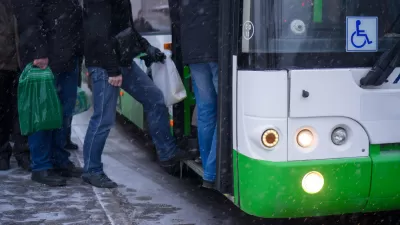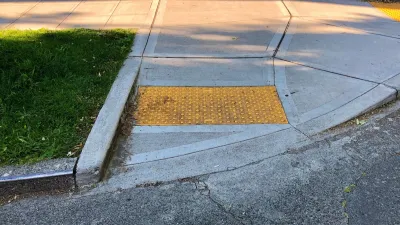The Urban Accessibility Explorer is an easy-to-use mapping system that measures the number of activities that can be reached by residents of specified neighborhoods within a given amount of travel time, by a particular mode and time of day.

(Updated 04/16/2015) The Metropolitan Chicago Accessibility Explorer is an easy-to-use mapping system that measures the number of activities, including various types of jobs, schools, parks, stores and libraries, that can be reached by residents of specified neighborhoods within a given amount of travel time, by a particular mode and time of day in the Chicago Metropolitan area. The results are displayed on maps that can be adjusted by scale and area. The Accessibility Explorer was developed by the Urban Transportation Center, which is a unit of the College of Urban Planning and Public Affairs at the University of Illinois at Chicago help policy makers, planners, and the general public easily evaluate how transportation system and land use change could alter accessibility.

This is an example of a new class of accessibility-based mapping tools, which also includes WalkScore and TransitScore, and the Access To Jobs Mapping System developed by the Regional Planning Association in the New York City region.
These tools help apply accessibility-based planning, which recognizes that the ultimate goal of most transport activity is access to goods and services, and that many factors can affect accessibility including the convenience, speed, and affordability of travel by various modes, transport network connectivity, land use density, and mix, and mobility substitutes such as telecommunications and delivery services.
(The post was updated to give proper credit to the developers of the app.)
FULL STORY: Metropolitan Chicago Accessibility Explorer

Alabama: Trump Terminates Settlements for Black Communities Harmed By Raw Sewage
Trump deemed the landmark civil rights agreement “illegal DEI and environmental justice policy.”

Planetizen Federal Action Tracker
A weekly monitor of how Trump’s orders and actions are impacting planners and planning in America.

Why Should We Subsidize Public Transportation?
Many public transit agencies face financial stress due to rising costs, declining fare revenue, and declining subsidies. Transit advocates must provide a strong business case for increasing public transit funding.

Judge Orders Release of Frozen IRA, IIJA Funding
The decision is a victory for environmental groups who charged that freezing funds for critical infrastructure and disaster response programs caused “real and irreparable harm” to communities.

‘Clybourne Park’ Sets Stage for Housing Equity Discussions
Clybourne Park, a play exploring race, real estate, and community tensions, can set the stage for discussion on the lasting impacts of housing discrimination, gentrification, and the fight for affordability.

Understanding Road Diets
An explainer from Momentum highlights the advantages of reducing vehicle lanes in favor of more bike, transit, and pedestrian infrastructure.
Urban Design for Planners 1: Software Tools
This six-course series explores essential urban design concepts using open source software and equips planners with the tools they need to participate fully in the urban design process.
Planning for Universal Design
Learn the tools for implementing Universal Design in planning regulations.
Caltrans
Smith Gee Studio
Institute for Housing and Urban Development Studies (IHS)
City of Grandview
Harvard GSD Executive Education
Toledo-Lucas County Plan Commissions
Salt Lake City
NYU Wagner Graduate School of Public Service




























